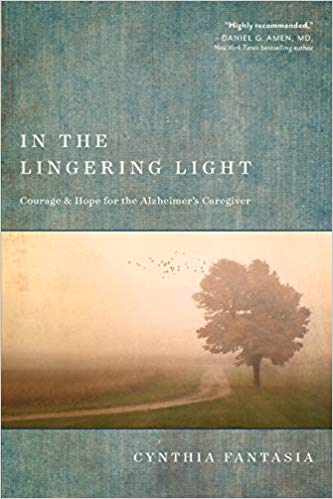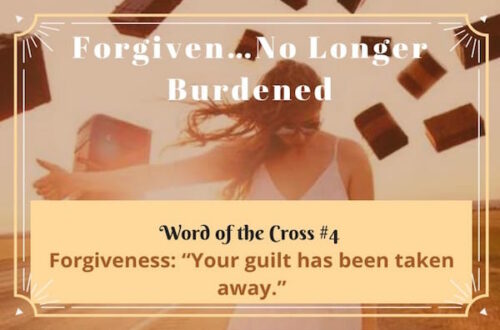
In The Lingering Light–A Book Encouraging Caregivers
I interviewed my friend Cynthia Fantasia about her new book In the Lingering Light: Courage and Hope for the Alzheimer's Caregiver.
For you caregivers, Cynthia's honestly and vulnerablity about her personal journey is truly a gift. I've already given books to two friends, knowing that it will encourage them and provide wisdom as they care for their husbands. For me, the book was a great help in understanding more of what it means to be a caregiver to those with memory loss. I believe it's a must read for ministers, as well as famly and friends of caregivers.
One of the things that I loved about In the Lingering Light was that it was both very personal and also extremely informative. Cynthia, please share with us a little background about your caregiver role.
I had been serving on Grace Chapel staff as Pastor of Women for 24 years. Late in 2012, I felt God nudging my restless heart that a change was coming. I had no idea what that change was but my heart had been restless for a while and I prayed that He would guide me to respond to that restlessness and potential change. As I explored many options, and continued to pray, it became increasingly evident that my time as Pastor of Women was coming to a close. I resisted for awhile but then realized that this was the right path. I set my retirement date as May 2014. In January of 2014 my husband was diagnosed with Alzheimer’s Disease – moderate to severe stage. For the next five months I continued to work (he was okay to be left alone for short periods of time)but only my body was at the office – my heart was at home. My supervisor encouraged me to work from home for the majority of time – and this was incredibly helpful.
The last day in May I left the office and my exciting career to become a full-time caregiver.
Alzheimer’s Disease is a cruel and relentless disease. There is no cure or treatment at this time. And there is not much “out there” to prepare a caregiver for this emotionally and physically draining role. (One of the reasons I wrote “In the Lingering Light”) For a while I/we were doing fine. He was not allowed to drive so I assumed responsibility for getting us wherever we had to go. We kept busy that first summer, but as fall approached, I began to notice a significant decline. He refused to go to any of the DayCare programs in our area so I asked a couple of friends to walk (oh how he loved to walk)with him, then I hired two caregivers (friends, but professionals)to come and stay with Bob for five hours each. This gave me some breaks and some time to regroup. Life continued to be increasingly challenging.
Caregiving is a 24/7 job as you watch your loved one become more and more distant and confused. I had to keep telling myself that it was “the disease talking,” that his loss of memory was a severe mercy for only I felt the pain of rejection and isolation when some friends stayed away.
The caregiver becomes the keeper of the memories, the keeper of the relationship, and MUST remember that love is what you give NOT what you get. It does no good to lament over “what might have been” yet I discovered that a healthy grieving process about all those plans that would never be, and all those years that we wouldn’t have together, isn’t all that bad. I cared for Bob as long as I could, then had to place him in a memory care facility. As hard as that was, I know it was the right thing to do at that time. However, his disease rapidly plummeted and he ended up in a geri-psych unit at a wonderful hospital. They cared for him until his death-34 months following diagnosis day!
I appreciated the honesty and insight that you share in the book about your spiritual journey while caring for your husband. What spiritual practices or habits helped you most during these years?
I have never been the person who gets up at 4:30 in the morning in order to spend a couple of hours reading a devotional, meditating, and praying. I pretty much would read a devotional and then pray as I went through my day.
But nothing “slowed me down.
When Alzheimer’s put a halt to the pace of our lives and I became the leader, the chauffeur, and chief cook and bottle-washer, there was little time for my own quiet time. But, Bob and I would eat breakfast together in our living room as he watched the cars go by the front of our home. I read a short devotional to him, then prayed a short prayer with him. Over time, he was unable to focus for very long so I would just pray a short prayer for our time that day, thank God for our lives, and ask Him to guide us through the day—maybe a 2 minute prayer. That was all the time he could focus.
For me, 1 Thessalonians 5:17 took on new meaning. “Pray continually.” My entire life became a prayer as I felt/enjoyed God’s intimate presence as we traveled through these dark valleys.
I haven’t experienced Alzheimer’s or dementia in my family, but I have friends whose spouses are in the early stages of Alzheimer’s. What advice would you give me as a close friend of a caregiver?
Don’t ask ”What can I do?” because we don’t know. My mom always used to say ”If you don’t know what to do for someone, feed them.” I was always grateful when someone stopped by with a meal, some coffee, some ice cream, whatever. It said ”You are not alone. I haven’t forgotten you.”
Don’t call and expect long conversations – these were the times my husband would get into mischief!
One of the greatest gifts a friend gave me was when she said ”I think you need more help, some more folks who will come in on a regular basis and take Bob for a walk, for an ice cream, for lunch. You should call some folks and ask them to help.” It must have been my ”deer in the headlights” look on my face, and she said (without missing a beat), ”I’ll make some calls for you and I’ll put together ”Team Bob.” I was incapable of asking for help. I was so vulnerable and couldn’t imagine how I’d feel if someone said ”no.” Building a team is so important and a friend can do that for a friend who is a caregiver.
What is one lesson that you now treasure from your time as an ALZ caregiver?
I learned lots of lessons during my caregiver season. Probably the one that stands out the most is “Intentionally Pursue Gratitude.” To the world, there isn’t much to be grateful about with Alzheimer’s Disease. But I found ways to be grateful: his tender smile that showed me he felt secure, a day that went by with a few crises but we “survived,” a walk together through our familiar neighborhood and listening as Bob observed things as if for the first time, continued reminders of God’s faithfulness, and the assurance that while I was “living on the other side of eternity” during Bob’s illness, we would, one day, share eternity together.
What does your life look like now?
Grief will be with me the rest of my life – at varying levels and times. I remember a close friend, whose daughter had died, telling me “I have a hole in my heart that will never close – but I will go on.” This is very true. I carry the precious memories that Bob and I have, I see him in our kids and grandkids, and I smile as I think of the wonderful life God has given, and continues to give, me.
When people ask me “How are you doing?” (not a good question), I usually respond “I don’t know, I’ve never done this before.” Then we both smile.
I’m learning to adjust to ME not US, MY not OUR, — little things like that.
I still INTENTIONALLY PURSUE GRATITUDE. When I get down, a smile creeps across my face when I think of Bob and his new Home, I love being with my grandkids and my kids, I keep busy, and I’m grateful.
I am humbled that God gifted me in writing “In the Lingering Light” and pray that it will offer hope to those on the Alzheimer’s journey. When I sat in the doctor’s office on diagnosis day hearing the words that exploded our life plans, I also “heard” God speak deep in my heart “Cynthia, I will restore the years the locusts will have eaten.” And He has and continues to do so.
This article was first published on September 3, 2019 on The Aroma of Influence.



